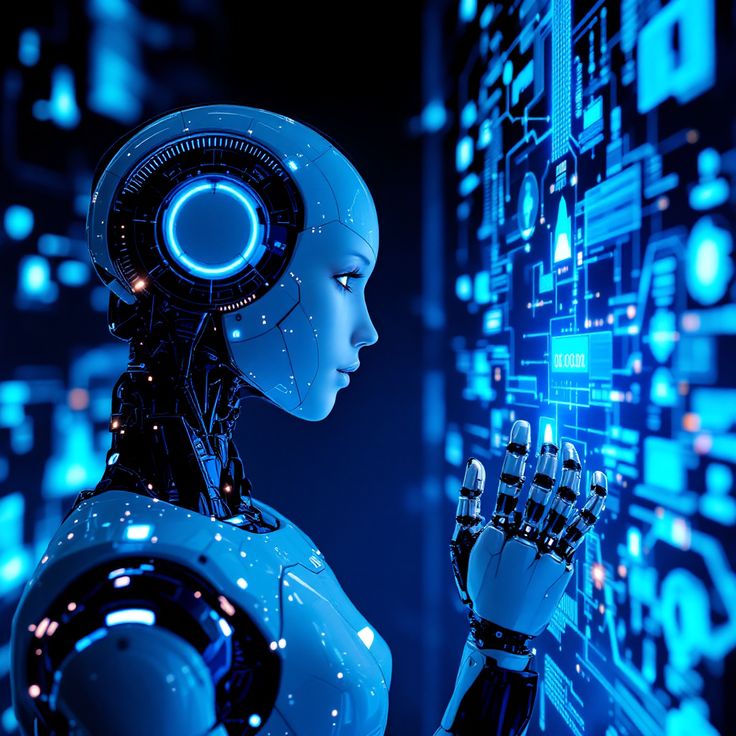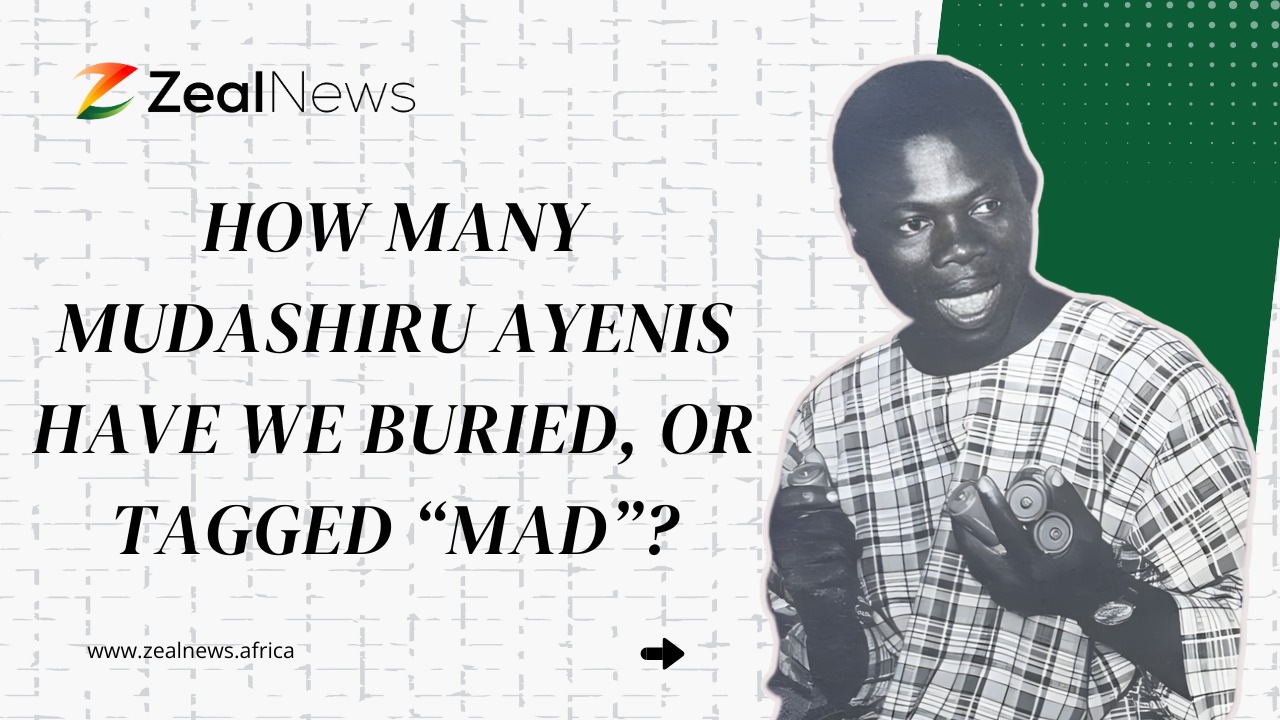When AI Doesn’t See Africa: Bias, Erasure, and the Fight for Digital Justice

Written By: Eric Namso
The field of Artificial Intelligence (AI) dates back to the 1950s, with early pioneers like Alan Turing, John McCarthy, and Marvin Minsky envisioning machines that could mimic human intelligence.
Yet, as AI evolved, from rule-based systems to machine learning and now generative AI, so did its blind spots.
The data that powers these systems has often reflected the realities and priorities of the Western world, leaving entire continents like Africa underrepresented or misrepresented.
The Problem Today
Fast forward to today: AI powers medical diagnostics, hiring algorithms, language translation, and even policymaking tools.
But what happens when these systems, built largely on Western datasets, are applied in non-Western environments?
For Africa, this means AI that doesn't speak its languages properly, misidentifies cultural artefacts, ignores local health conditions, or perpetuates colonial assumptions.
The history of AI is, in part, a history of whose knowledge counts—and Africa’s marginal role in the early development of AI is now being replicated in the age of big data and machine learning. As AI grows more integrated into governance, economics, and society, the stakes are higher than ever.
A Bias Built Into the Code
AI systems are predominantly trained on Western-centric datasets, resulting in models that marginalize African contexts—from cultural norms to languages, cuisine, skin tones, and dialects.
This mismatch supports a broader pattern of systemic inequalities in AI, ultimately impacting real-world applications in healthcare, democracy, and economic development.
AI Bias, Explained
Photo Credit: Clarote & AI4Media
According to SAP, AI bias arises when the output of an AI system reflects prejudices or unfair assumptions, often unintentionally embedded during data collection or algorithm design. These biases can be systemic, statistical, or human-led.
Types of AI Bias:
Historical Bias – Occurs when data reflects existing inequities (e.g., datasets that favour Western standards of beauty or healthcare).
Representation Bias – When certain groups are underrepresented in the data (e.g., low volumes of African languages in NLP datasets).
Measurement Bias – When the way data is collected skews outcomes (e.g., surveillance tools mislabeling darker skin tones).
Aggregation Bias – When models fail to account for regional or cultural differences (e.g., grouping African dialects as one “language”).
Evaluation Bias – When systems are tested mostly in Western contexts before deployment elsewhere.
Deployment Bias – When AI tools are applied in environments they were never meant for, such as using American police-predictive AI in Lagos or Kampala.
Cultural and Linguistic Misalignment
Photo Credit: Google
Africa is home to over 2,000 languages and thousands of dialects, yet most AI language models are trained predominantly in English, Mandarin, or European languages.
Tools like Google Translate or ChatGPT still struggle to translate many African languages accurately. Worse still, some African languages are excluded entirely.
This isn’t a coincidence—it reflects a long-standing issue in how knowledge is prioritised.
When AI systems don’t understand our languages, they miss the essence of our culture, values, and identity. They can't capture the nuances of local proverbs, idioms, or historical references. In essence, AI becomes blind to Africa’s voice.
This misalignment leads to more than just inconvenience. It causes exclusion in digital communication, limits access to online education, and reinforces cultural erasure.
When African culture isn’t represented digitally, it becomes easier to erase it from the global narrative.
Healthcare Disparities
Medical AI has incredible potential—but its misuse can be fatal.
Many diagnostic tools are trained on datasets from European and American patients, resulting in systems that don’t accurately reflect African genetics, diseases, or symptoms.
For instance, skin cancer detection algorithms often fail to detect symptoms on darker skin tones.
Beyond misdiagnosis, there's the risk of neglect. Conditions more common in African communities, such as sickle cell anaemia or malaria, receive less attention in Western-trained models. The result? Delayed care, incorrect treatments, and increased mortality.
In maternal health, tools developed in the West often overlook high-risk factors unique to African women. If left uncorrected, AI could widen the very gaps it promises to close.
The Bigger Picture: Impact on Daily Life
Photo Credit: Google
The consequences of biased AI in Africa extend far beyond healthcare or translation errors. They influence:
Who gets hired
Who gets approved for loans
Who is flagged by surveillance systems
Who gets silenced on social media
In education, African students using AI-powered platforms may receive examples or feedback that are irrelevant or culturally detached. In governance, AI tools could reinforce colonial-era assumptions about African societies, leading to poor or harmful policy decisions.
These outcomes don’t just disadvantage individuals—they reinforce global inequalities.
Africa already faces challenges in infrastructure, access, and investment. A future where AI deepens those divides is not one the continent can afford.
Way Forward: Shaping AI With Africa, Not Around It
Africa doesn’t just need to use AI—it needs to help build it. That starts with:
Access to data
Funding for local research
Platforms for African voices in global AI development
Institutions and governments must invest in AI research rooted in African realities, led by African developers, linguists, and ethicists.
Open-source projects that collect local data ethically and respectfully are vital. Initiatives like Masakhane—a grassroots NLP movement for African languages—and work being done to build datasets in Swahili, Yoruba, and Amharic are powerful steps forward.
International companies must be held accountable. If they want to deploy AI tools in African markets, they must train those tools using African data and in consultation with African experts.
Anything less is digital colonialismdisguised as innovation.
Policymakers should draft ethical frameworks ensuring that AI serves local communities. Universities and tech hubs must be empowered to develop homegrown solutions.
Above all, African knowledge systems—from oral traditions to indigenous technologies—should be valued, not sidelined.
In Conclusion
Africa has long been treated as a data desert in the digital age. But that doesn't mean it must remain one.
The future of AI must include Africa, not as an afterthought, but as a co-creator. If AI is to shape our world, then Africa must help shape AI.
The solution isn’t to reject AI, but to reimagine it:
To train it not to see us through someone else’s lens…
But to recognise us, as we truly are.
You may also like...
When Sacred Calendars Align: What a Rare Religious Overlap Can Teach Us

As Lent, Ramadan, and the Lunar calendar converge in February 2026, this short piece explores religious tolerance, commu...
Arsenal Under Fire: Arteta Defiantly Rejects 'Bottlers' Label Amid Title Race Nerves!

Mikel Arteta vehemently denies accusations of Arsenal being "bottlers" following a stumble against Wolves, which handed ...
Sensational Transfer Buzz: Casemiro Linked with Messi or Ronaldo Reunion Post-Man Utd Exit!

The latest transfer window sees major shifts as Manchester United's Casemiro draws interest from Inter Miami and Al Nass...
WBD Deal Heats Up: Netflix Co-CEO Fights for Takeover Amid DOJ Approval Claims!

Netflix co-CEO Ted Sarandos is vigorously advocating for the company's $83 billion acquisition of Warner Bros. Discovery...
KPop Demon Hunters' Stars and Songwriters Celebrate Lunar New Year Success!

Brooks Brothers and Gold House celebrated Lunar New Year with a celebrity-filled dinner in Beverly Hills, featuring rema...
Life-Saving Breakthrough: New US-Backed HIV Injection to Reach Thousands in Zimbabwe

The United States is backing a new twice-yearly HIV prevention injection, lenacapavir (LEN), for 271,000 people in Zimba...
OpenAI's Moral Crossroads: Nearly Tipped Off Police About School Shooter Threat Months Ago
ChatGPT-maker OpenAI disclosed it had identified Jesse Van Rootselaar's account for violent activities last year, prior ...
MTN Nigeria's Market Soars: Stock Hits Record High Post $6.2B Deal

MTN Nigeria's shares surged to a record high following MTN Group's $6.2 billion acquisition of IHS Towers. This strategi...






